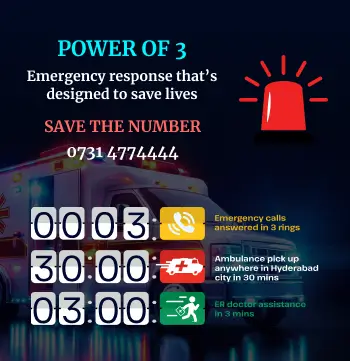Dehydration
Did you know our bodies are mostly water - about 78%? Your brain and heart are 73% water, and your lungs contain an amazing 83%. Your body faces dehydration risks when it loses more fluids than it takes in. This can create serious health problems if left untreated.
Your body can't handle its simple functions without sufficient water. Several warning signs point to fluid loss - headaches, feeling tired, getting dizzy, having a dry mouth, and dark urine. These signals need attention because severe dehydration can lead to dangerous complications like kidney failure, heatstroke, and shock.
Most mild cases can be treated easily at home. Everyone needs to know how to spot, treat, and prevent this common health issue to stay healthy.
Signs and Symptoms of Dehydration
Thirst and darker urine serve as the first warning signs of dehydration. Your body shows these dehydration symptoms when it loses more fluid:
- Dry mouth and sticky lips
- Headaches and muscle cramps
- Fatigue and dizziness
- Reduced urination
Infants show signs through sunken fontanelles (soft spots on heads), fewer wet nappies, and crying without tears.
Symptoms of dehydration in women and men might also include sunken eyes, dry skin, and increased confusion.
Causes of Dehydration
Your body can lose fluids through various ways:
- Excessive sweating from heat or exercise
- Diarrhoea and vomiting, which prevent water absorption
- Fever that increases sweating and fluid requirements
- Urinating too frequently (often linked with diabetes or medications)
- Burns that damage blood vessels, causing fluid leakage
Many people don't drink enough water throughout the day because of busy schedules or limited water access.
Stages of Dehydration
Dehydration develops in distinct phases:
- Mild: Thirst, headache, and concentrated urine mark this stage. Drinking fluids usually helps.
- Moderate: The body shows dry skin, decreased sweating, and increased heart rate. Medical help becomes necessary.
- Severe: The person experiences extreme thirst, minimal urination, confusion, rapid heartbeat, and might lose consciousness. This stage requires immediate medical attention.
Risks
These groups face higher dehydration risks:
- Infants and young children
- Adults over 65 who have reduced thirst sensation
- People with chronic illnesses like diabetes
- Those taking diuretics or certain blood pressure medicines
- Athletes and outdoor workers
Complications of Dehydration
Untreated dehydration can trigger serious health problems. These include:
- Kidney stones and failure
- Seizures from electrolyte imbalances
- Heat injuries - ranging from cramps to heatstroke
- Low blood volume shock might occur - a condition that can be fatal.
Diagnosis
Doctors use multiple methods to identify dehydration.
- A physical examination shows signs like dry mouth, decreased skin elasticity, and low blood pressure.
- Blood tests measure electrolyte levels, kidney function, and sometimes reveal relative polycythemia from hemoconcentration.
- Urine analysis reveals concentrated urine with a darker colour, though this sign alone cannot confirm dehydration.
- Doctors check infants' skulls for sunken fontanelles.
Treatment for Dehydration
Severity determines the right dehydration treatment.
- Mild cases improve with water or electrolyte-containing fluids.
- Patients with moderate dehydration just need oral rehydration solutions that contain sodium, potassium, chloride, and bicarbonate.
- Severe cases require medical intervention with intravenous fluids to restore balance quickly.
- Children should drink appropriate solutions like Pedialyte instead of plain water, which can worsen electrolyte imbalances.
When to See a Doctor
Seek immediate medical help for:
- Severe thirst with confusion or disorientation
- Blood in stool or severe diarrhoea lasting over 24 hours
- Inability to keep fluids down
- Dark urine or no urination for 8+ hours
- Fever above 102°F (38.8°C)
Parents should get help if their infant shows decreased wet nappies, no tears while crying, or unusual drowsiness.
Prevention of Dehydration
Be proactive and drink fluids regularly throughout the day.
- Your fluid intake should increase before, during, and after exercise or hot weather exposure.
- Caffeinated drinks, alcohol, and sugary sodas can worsen dehydration, so avoid them.
- Older adults and children need extra watchfulness because their fluid regulation systems might not work efficiently.
Home Remedies for Dehydration
Several household options can restore hydration besides water:
- Coconut water (high in electrolytes and potassium)
- Buttermilk mixed with ginger and salt
- Clear broths and soups
- Water-rich fruits like watermelon and oranges
- Mix six teaspoons of sugar with ½ teaspoon salt in 1 litre of water to make a homemade rehydration solution.
Conclusion
Water is the lifeblood of our bodies. Now we know why proper hydration is a vital part of our overall health and well-being.
Your body signals you when fluid levels drop too low. Watch out for signs like thirst, headaches, dark urine, and fatigue. Note that your body starts experiencing mild dehydration even before you feel thirsty.
Simple dehydration treatment at home, like water or electrolyte drinks, can fix most mild cases. Medical attention becomes necessary for moderate to severe dehydration, especially when you have vulnerable groups like children, older adults, and those with chronic conditions.
A proactive approach works best. Your body maintains proper fluid balance when you drink water throughout the day, especially during exercise or hot weather. Natural options like coconut water or a mix of sugar, salt and water can restore hydration quickly during minor episodes.
The human body adapts to many challenges remarkably, but it can't function without enough water. Pay attention to your body's signals and drink water before thirst hits. Make hydration your daily priority. Something as basic as drinking enough water could save your life someday.
FAQs
1. What are the effects of not drinking enough water?
Your body sends clear signals when it needs more fluids. If you ignore these warning signs, you might experience:
- Mental fog and memory problems
- Constant tiredness and low energy
- Headaches and dizziness
- Constipation and digestive issues
- Dry skin that ages faster and chapped lips
- Joint pain and muscle cramps
- Less fat breakdown
- Higher chances of kidney infections
- Changes in mood, including anxiety
2. Is milk good for dehydration?
Absolutely! Studies show milk works better than water to rehydrate you.
The science behind this is simple. Milk has the right mix of water (89% by volume), protein, fat, and electrolytes. These nutrients help your stomach hold onto fluids longer. The sodium in milk works like a sponge that helps your body keep water and produce less urine.
Scientists tested this on adult men and found both whole and skimmed milk kept them hydrated better than water even 3-4 hours later. This makes milk your best choice when you need to rehydrate.
3. How do you rehydrate fast?
Pick drinks with electrolytes instead of plain water for quick results. Stay away from alcohol since it makes you urinate more and worsens dehydration.
Research suggests using a straw helps you drink more without trying as hard. Additionally, it's better to sip throughout the day rather than drink large amounts at once.
Eating foods full of water, like watermelon, oranges, cucumbers, and celery, helps too. After exercise, replace lost fluids by drinking 1.5 litres (three cups) for each kilogram of weight you lose during your workout.
4. How much water do I need to drink per day?
The U.S. National Academies suggests men should drink about 15.5 cups (3.7 litres) daily while women need 11.5 cups (2.7 litres). Your food actually provides about 20% of this water.
Your needs change based on the following:
- Age and weight
- Activity level
- Climate
- Overall health
Your body knows best - if your urine is clear or pale yellow, you're likely drinking enough.





